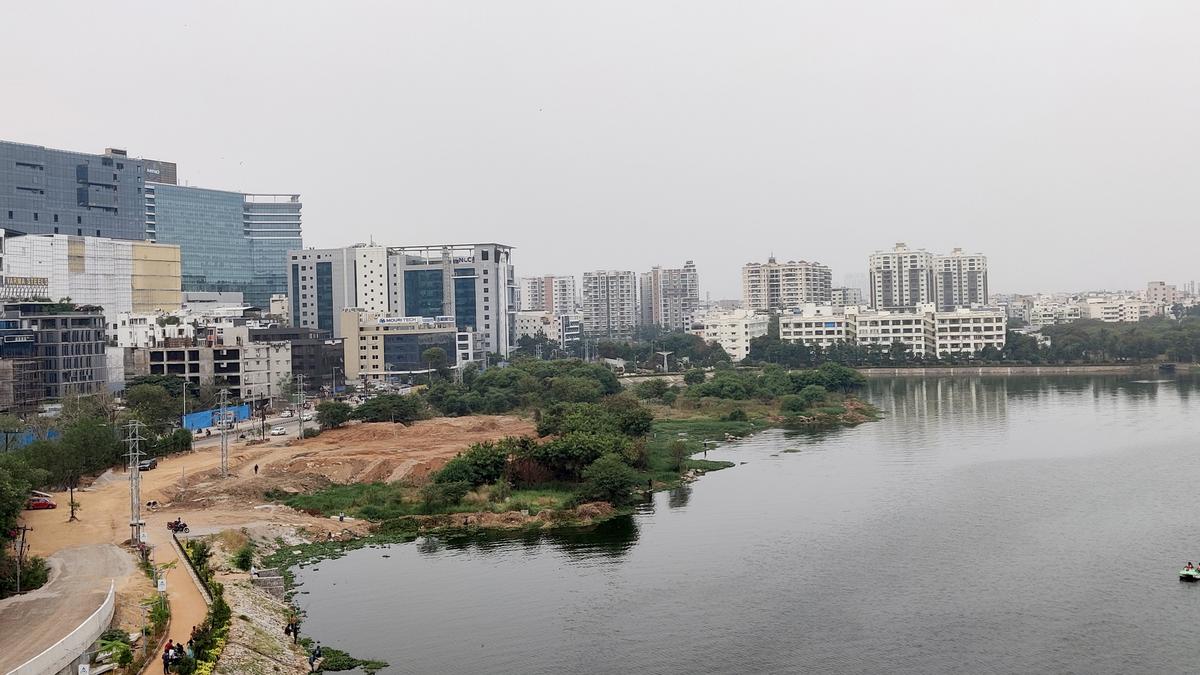
Durgam Cheruvu on the throes of death
The Hindu
Dead fish found in iconic Durgam Cheruvu lake in Hyderabad, sparking suo motu cognisance by High Court. Sewage & construction choking other lakes in city.
The iconic Durgam Cheruvu is in the limelight yet again, thanks to the hundreds of fish which showed up dead or dying in its waters, leading to suo motu cognisance by the High Court of Telangana.
The lake nestled amid the most happening neighbourhoods of the city is more fortunate, as it has caught the attention of the judiciary. A few months earlier, dead fish were found floating in large numbers in the Lotus Pond in Jubilee Hills, reasons for which have not been revealed. Sewage being let into the Chiran Kunta of KBR National Park is a perpetual topic for the environmentalists to agitate about.
A large number of other lakes in the city are condemned forever to pollution and sewage, where fish hardly survive, be it the Hussainsagar, Nalla Cheruvu in Uppal, Bandlaguda Cheruvu in Nagole, or Miralam Cheruvu of Bahadurpura.
However, fish death in Durgam Cheruvu has the potential to raise quite a few eyebrows, because just over two months ago a new sewage treatment plant with a capacity of seven million litres per day, was installed for the lake which cost the exchequer a whopping ₹35 crore. This puts a question mark on all the 31 STPs being constructed by the Hyderabad Metropolitan Water Supply & Sewerage Board (HMWS&SB) across the city, at a huge cost of ₹3,866 crore.
“Durgam Cheruvu is facing multiple threats. Maximum lake area is encroached for construction of upmarket living spaces. Both the STPs, and the immersion point are encroachments. Through construction of walking track, the government further divided the lake area, and the piece left out of the walking track is levelled. Dumping of debris during construction of the cable bridge further reduced the holding capacity of the lake,” said Lubna Sarwat, activist from the city.
A scientific paper published in August this year by a team of researchers from the Civil Engineering departments of Mahindra University and IIT-Hyderabad, titled ‘Non-Target Screening Of Organic Micropollutants In Durgam Cheruvu Lake, India’, reported a total 183 compounds identified from three sampling sites of the lake, which included pharmaceuticals, metabolites, herbicides, fungicides, insecticides, pesticides, hormones, steroids, personal care products, plasticizers, and cyanotoxins among others.
“The two cyanotoxins Microcystin-LR and Anatoxin-a, which are generated by cyanobacteria during eutrophication, were also identified at all sample locations, indicating the presence of high nutrient concentrations in the lake,” the paper said.













